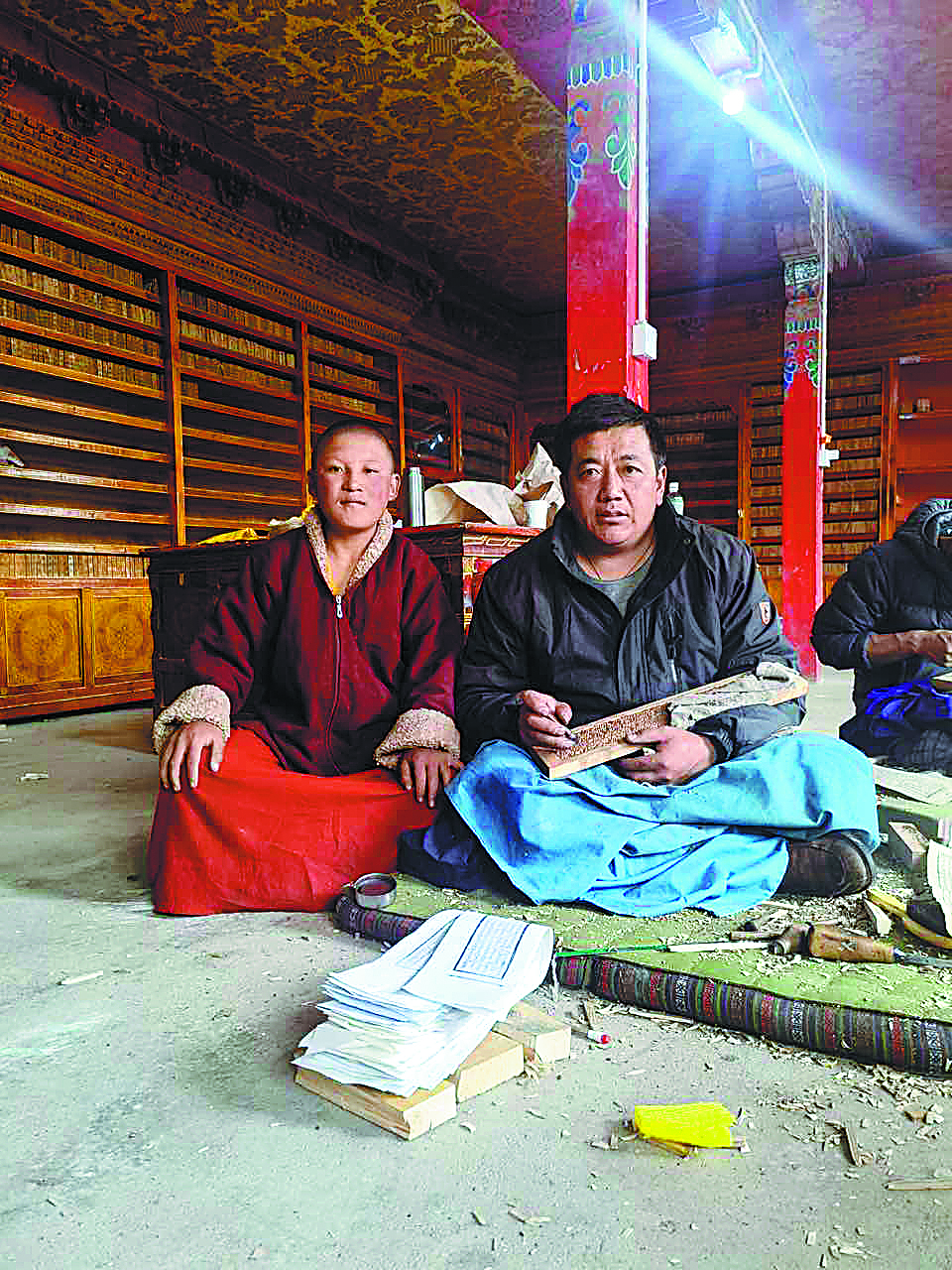Tibetan cooperatives change people's lives
By DAQIONG and PALDEN NYIMA in Lhasa | CHINA DAILY | Updated: 2021-11-03 09:55

The Tibet autonomous region plans to establish more than 700 cooperatives, each with assets in excess of 1 million yuan ($155,000), at the end of this year, according to the region's Department of Agriculture and Rural Affairs. There are also plans to establish 70 cooperatives with asset in excess of 10 million yuan, local media reported.
Official statistics show that there are now nearly 13,000 cooperatives in the region, 667 of which own assets in excess of 1 million yuan. The cooperative model is one of the region's key indicators of rural vitalization, agricultural development and rural modernization. In some villages, big business has been invited to work with the cooperatives to enable their development, which has greatly contributed to market resources and income generation for rural residents.
Established in 2016, the Delek Paljol Tibetan Calligraphy and Engraving Inheritance Rural Cooperative in Ruba village in Nyemo county is an example of cooperatives benefiting impoverished residents. Karma Chodrak runs the Delek Paljol cooperative. It has employed more than 10 families in the last few years, which has helped the village become wealthier and broaden villagers' business horizons.
According to Karma Chodrak, five impoverished families in particular have benefited, each earning an annual income of 50,000 yuan in the last few years.
"Now they have become wealthier, they have built new houses, and I've taught them business skills. I am truly happy they have become independent," he said.
The villagers traditionally carved woodblocks used in printing scriptures, but they did not know how to transfer those skills to making modern souvenirs.
In 2020, the local employment bureau hired Karma Chodrak to train 25 artisans for a few months. He received a bonus of 100,000 yuan from the bureau, and villagers benefited by learning to apply their skills to new ends. For playing a leading role in poverty alleviation in his village, Karma Chodrak has received subsidies from different governmental institutes, including 50,000 yuan last year from the Lhasa bureau of agriculture and animal husbandry.
"Cooperatives play a vital role in poverty alleviation and rural vitalization, not only because they provide the less skilled with job opportunities, but also because they help them think correctly, and become more independent and capable," Karma Chodrak said. "Cooperatives also give stakeholders the chance to explore bigger markets, help gather resources, and create a link with the whole market system."
Sonam, a fellow villager, said that he was one of the cooperative's beneficiaries. Before becoming a member in 2016, he used to live in an old earthen house, and did not have a stable income. "By being involved in the cooperative for almost five years, I have been able to build a new, bigger house for my family, and I bought a new car last year," he said.
























